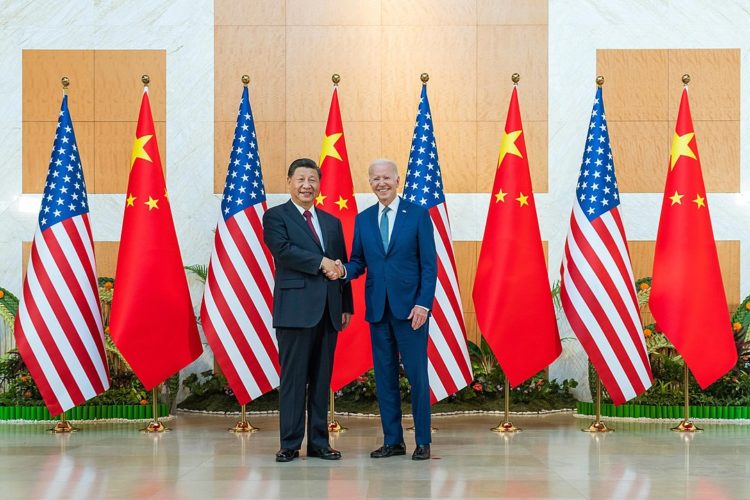Finally, Blinken highlighted to Wang how critical the US-China alliance is: “This is something that the world expects of us — they expect us to manage this relationship responsibly, and so it was important that we had that opportunity this evening here in Munich.”
On the other hand, Wang said the US was being too “hysterical” with their reaction about the incident. He also called out the United States for its “abuse of force” towards the Chinese government.
“There are so many balloons all over the world, and various countries have them, so is the United States going to shoot all of them down?” he said.
Tensions between the United States and China have escalated since the US shot down a balloon near South Carolina’s coast that they claimed to be a spy device. China has maintained that the balloon was not intended for espionage.
For everyone with bullshit detectors that work:
"China doesnt need drifting balloons for spying.
They have 300 satellites, a third of those with military capability"-Douglas MacGregor pic.twitter.com/dB4WdY8xEi
— Richard (@ricwe123) February 17, 2023
A senior State Department official revealed that the Chinese military was linked to the manufacture of the balloon, which had been flying in the skies of the US for eight days, and was equipped with “multiple antennas” used for collecting signals intelligence, as reported by NBC News.
On Saturday, a senior official from the State Department declared that the US has not received any convincing explanation and remains confident in its judgment that the object was a surveillance balloon.
When asked if the balloon was purposely sent to conduct surveillance, Blinken declared that “the balloon tried to monitor highly sensitive military locations.”
There is no doubt in his mind that they encountered a surveillance balloon actively trying to monitor the area.
China’s Asserting Dominance Over the US
China is increasingly asserting its dominance over the United States through its strong economic ties to the nation. According to a 2022 report from World Economics Research, US-China relations have become highly intertwined, with China’s economy now comprising nearly one-fifth of global GDP (18.5%), standing at the top, while the US comes in second (16%). Additionally, China’s exports to the US last year reached $536.8B, while US exports to China only amounted to $30.1B. Not to mention, US’ largest tech and consumer products are still primarily produced in China. This gives Beijing a great deal of leverage over Washington, which it can use to push its agenda.
This has been evidenced by recent geopolitical events in which China has flexed its muscle against the United States. For instance, in 2018, Chinese President Xi Jinping imposed tariffs on 128 American products as retaliation for tariffs placed by President Donald Trump on Chinese goods. The sudden increase in import taxes cost US businesses an estimated $15 billion per year and thousands of jobs. Then in 2020, Beijing passed a new security law restricting freedoms and civil rights in Hong Kong—a move widely seen as a direct challenge to US foreign policy goals and values.
From a military perspective, this growing power imbalance between the two nations could present severe challenges for the United States down the road.
According to Gen. Michael A. Minihan, who oversees the Air Force’s fleet of transport and refueling aircraft, US-China War could happen as soon as 2025 if these policy talks are not ironed out.
“I hope I am wrong,” Minihan wrote. “My gut tells me we will fight in 2025. Xi secured his third term and set his war council in October 2022. Taiwan’s presidential elections are in 2024 and will offer Xi a reason. United States’ presidential elections are in 2024 and will offer Xi a distracted America. Xi’s team, reason, and opportunity are all aligned for 2025.”
He also cites that their monitoring of the increasing military budget spending and development could be the signal the US military should watch out and prepare for.
While these advancements can pose risks for US national security interests, they also demonstrate how comfortable Chinese leaders are getting with challenging traditional American leadership in global affairs—something most likely emboldened by their increasing economic ties with other countries around the world. This confidence was certainly visible during Beijing’s first meeting following the spy balloon incident with Secretary Blinken, where Wang Yi offered no apology for what many see as an infringement on US sovereignty and international law.
The fact that this type of aggression from Beijing continues unchecked should serve as a wake-up call for policymakers here at home who must now take steps to level the playing field between China and America diplomatically and economically or risk further ceding ground to our rising superpower rival.










COMMENTS